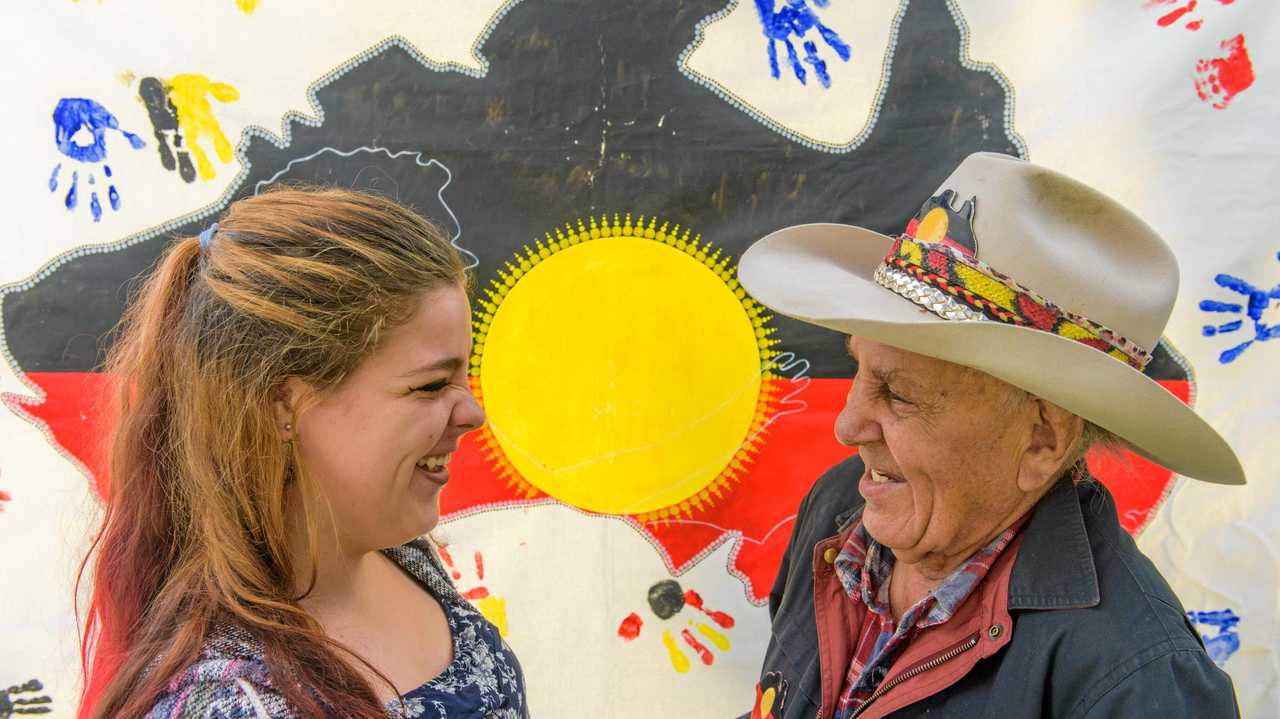Still striving for reconciliation
Janelle Brown tells how people are encouraged to explore the history of Aboriginal people and shared history

Central & North Burnett
Don't miss out on the headlines from Central & North Burnett. Followed categories will be added to My News.
WE have all probably heard of the term "reconciliation" in relation to the relationship between Aboriginal people and non-Aboriginal people. But what does it really mean for Aboriginal people and what does "Reconciliation Australia" do?
The Oxford dictionary definition of the word is "the restoration of friendly terms".
Given this definition, some people would say that, perhaps reconciliation may not be quite the right word to use, when endeavouring to improve the relationship between Aboriginal and non-Aboriginal people.
This is because given Australia's history, it can be argued that on a whole, there has never really quite been "friendly terms" between Aboriginal and non-Aboriginal people.
Nevertheless, the Australian government, to improve this relationship with its indigenous people, set up the Council for Aboriginal Reconciliation in 1991 and its replacement, Reconciliation Australia, in 2001.
Reconciliation Australia defines reconciliation as having five dimensions: race relations, equality and equity, institutional integrity, historical acceptance and unity.
There are specific goals attached to each of these areas with the ultimate goal being "that indigenous histories, cultures and rights are valued and recognised as part of the shared national identity and, as a result there is national unity".
Reconciliation Australia has initiatives to address these goals. These include: Reconciliation Action Plan program, Indigenous Governance Program, Reconciliation Week and supporting the Uluru statement from the heart which seeks Constitutional recognition, and the provision of resources to support school curriculum.
The RAP program is one of Reconciliation Australia's most significant programs and it "provides a framework for organisations to support the national reconciliation movement". In fact many organisations are developing RAP Plans including the Primary Health Network, Social Futures and Clarence Valley Council.
However, the most well- known aspect of the reconciliation movement is National Reconciliation Week which is celebrated from May 27 to June 3 each year.
It originally started as a Week of Prayer for Reconciliation, during the International Year of the World's Indigenous People in 1993.
One of the most significant Reconciliation Week events though, was in the year 2000 when over 300,000 people took a walk across Sydney Harbour Bridge to celebrate and promote reconciliation.
This year the theme for Reconciliation Week is "Don't Keep History a Mystery". This theme encourages all Australians to explore the history of both Aboriginal people and the shared history between Aboriginal and non-Aboriginal people - the good, the bad and the ugly.
Acknowledgement of past wrongs is important to Aboriginal people. It's not about making anyone feel guilty. Quite the opposite, it's about acknowledging what did happen and then moving forward together and healing as a nation. Of course not all our history is bad, there has been some pretty amazing interactions that did happen between Aboriginal and non-Aboriginal people.
Given that Reconciliation Australia's website contains a massive amount of information about Aboriginal people including history, culture and belief systems, checking out its website would be a good starting point for those interested in learning more.
This year to celebrate reconciliation day, the Clarence Valley Aboriginal Healing Centre based at Gurehlgam is having a morning tea in their healing garden at 18-26 Victoria St, Grafton. Phone 02 6642 8103 or 0423 918 602 for more information. Everyone is welcome to attend.
Reconciliation Australia's website - https://www.reconciliation.org.au
Originally published as Still striving for reconciliation






